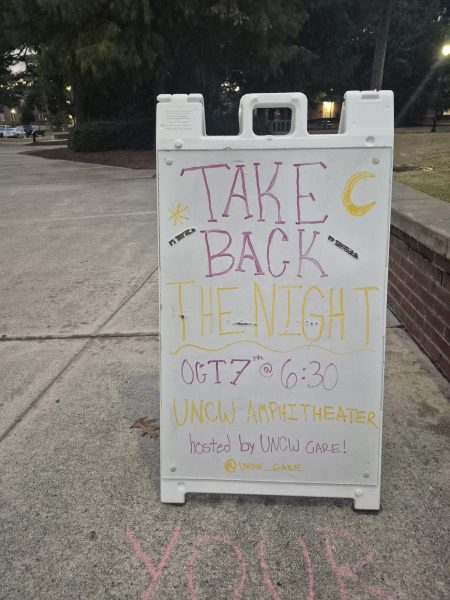Doctors or Drug Dealers
Adderall is a psychostimulant, a combination of dextroamphetamine and amphetamine that is known to increase focus for extended periods of time, suppress appetite, and keep users awake. College students seeking an edge over their classmates or a quick fix to procrastination are resorting to popping pills on a regular basis.
According to a recent report by the US Department of Health and Services, among persons aged 18 to 22, full-time college students were twice as likely to use Adderall nonmedically in the past year as those who had not been in college at all or were only part-time students.
The pills on their own can have adverse side effects for abusers, like an increase in blood pressure and heart rate. But even more serious is the danger students face when they binge drink while using the drug.
This is similar to caffeinated alcoholic drinks, which have fallen under legal scrutiny recently.
The report also stated that nearly 90% of the full-time college students who had used Adderall nonmedically in the past year also were past month binge alcohol drinkers and more than half were heavy alcohol users.
Rebecca Caldwell, Director of Crossroads at UNCW, says that Adderall reduces the depressive effects of intoxication.
“Stimulants mask the normal signs that tell students they are intoxicated, making them more prone to alcohol poisoning,” says Caldwell.
According to a study published by Nature in 2008, only one in every five users has a prescription for Adderall. With drug costs on the rise, prescriptions that insurance will pay for are increasing in popularity.
“I faked it,” said Ben, a graduating senior. Ben started taking Ritalin from his mother’s medicine cabinet when he was in middle school. Now he has a long-term prescription for Adderall.
“I knew what ADHD looked like, and I just copied that when I went in for an evaluation,” Ben explained.
It is clear that some college students have a relatively easy time getting prescribed Adderall. I decided to go undercover and find out just how available this overprescribed and often abused drug is.
Undercover at UNCW
The plan was to walk into the Health Center on campus complaining of ADHD symptoms, like sleep problems and trouble in class, and find out the lengths it would take to get a legitimate prescription.
Faking symptoms of ADHD was relatively simple, but doctors were reluctant to prescribe medication before I paid a visit to the counseling center next door.
After three weeks of hour-long appointments, displays of obvious symptoms and even suggesting a strong family history of ADHD, the psychiatrists at the Counseling Center stood firmly against a prescription. They provided extensive advice on sleep hygiene, the process used to help mild insomnia, and suggested visiting a doctor off-campus that specialized in my symptoms.
“We let doctors that specialize in mental health take care of that,” one doctor at Health Services said.
Looking Off Campus
On my first visit to an off-campus physician, my symptoms were recognized immediately. Before receiving a prescription for Adderall, patients must submit blood and urine for drug testing. This is a necessary precaution, because mixing drugs with a stimulant like Adderall can have deadly repercussions.
Although they could not offer a diagnosis, they immediately recommended another facility that could. The physician confirmed that after a psychiatrist’s evaluation was submitted, I could go back to the health center for future prescriptions and to manage my medication.
However, several students in the past haven’t needed a diagnosis to obtain a prescription, said the physician.
“Many students can benefit from stimulants, even if they don’t have ADHD,” the physician explained.
Another physician said that patients are given a computer task that examines their ability to focus as part of the diagnostic process.
“It’s easy,” the physician said reassuringly.
Are UNCW students taking the risk?
After speaking with UNCW undergraduates, the results of my undercover experiment were not surprising.
“I used prescription drugs, without a prescription, for my last two years at UNCW,” said Amy, a graduating senior. “I don’t think I would be graduating in May without it,” she laughed and continued, “and I probably wouldn’t look as good for senior photos.”
Amy was referring to popping an Adderall pill, or as she put it, an “Addy,” in order to study and maintain her weight. She, like some Adderall users, got her pills from a friend diagnosed with ADHD.
However, Caldwell admitted that students who use Adderall to study generally have lower GPAs than students that commit to studying in a healthy environment.
Prevention
Student Health Services currently does not provide diagnoses for students who suspect they have ADHD and narcolepsy or other sleep disorders, but that may soon change.
“We’re looking into it,” said Katrin Wesner, the Director of Student Health Services.
“Frequently, students will see something in a magazine or from friends or off the Internet, and ask to try a drug,” she continued. “We don’t do that here, we work with the Counseling Center and recommend seeing someone off campus.”
“Most of what we do is education,” Wesner said. “A lot of us want a quick fix.”
Dr. Walter Mclaughlin, The Medical Director of UNCW, said he has seen cases where students ask specifically for a stimulant, either to study with or to treat ADHD with.
“There are a lot of students on campus that either have ADHD, are seeking the drug to use it to study, or legitimately think they might have ADHD. Regardless of which category they fall in, dealing with all of these cases may currently exceed the resources that the counseling center has,” Mclaughlin said.
“That may change in the future, but for now, Student Health Services refers students to the Counseling Center, which, under policy, will not prescribe or treat students for ADHD, but will evaluate students for other psychiatric diagnosis and get them to the right provider off campus,” Mclaughlin said.
Caldwell says that Crossroads encourages students to maintain healthy study habits like eating nutritious meals, avoiding caffeine, getting assignments done early and getting proper rest.
Editor’s note: Due to deadline restrictions, Angela’s investigation is still ongoing. Follow online for updates. Also, some names have been changed to protect the anonymity of students interviewed.







